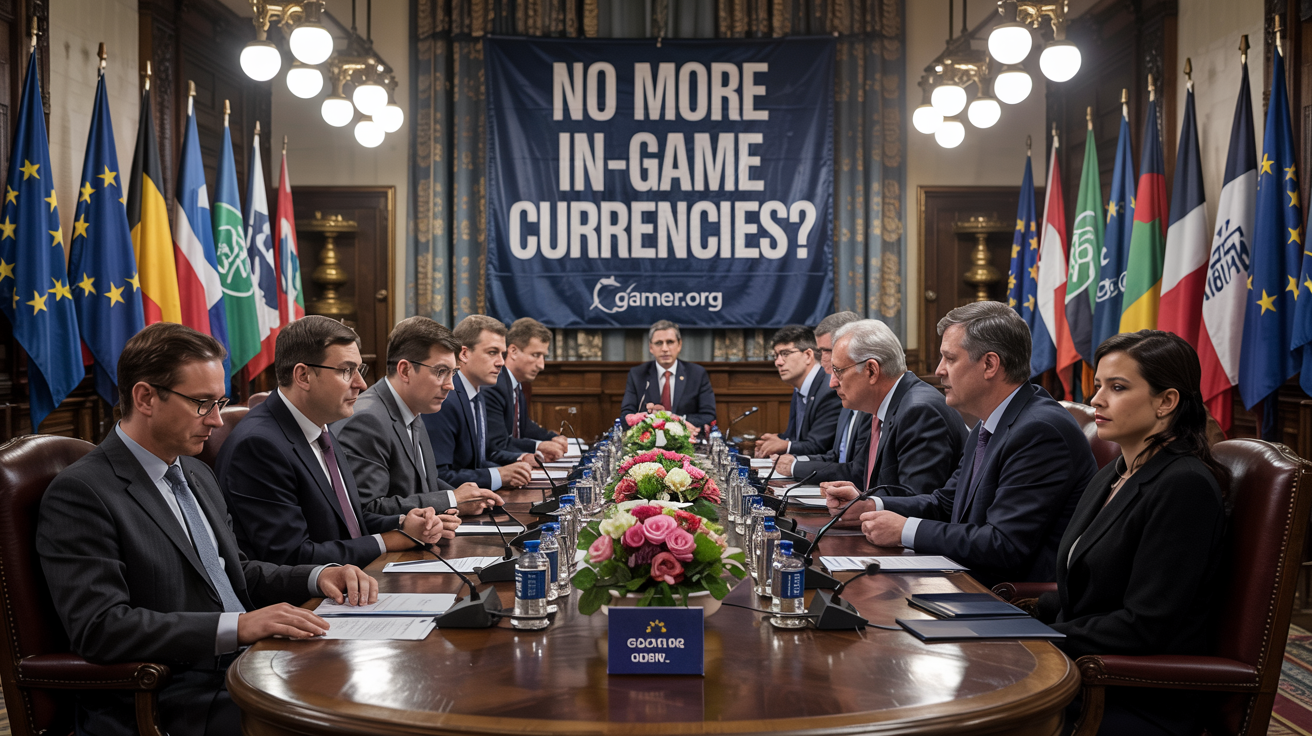European Union Gaming Laws Might Just Change In-Game Purchases Forever

A true bombshell just dropped for the gaming industry. The European Union has rewritten the rules on premium currency in games—rules that could genuinely change how games are played, bought, and monetized. And this isn’t some vague policy shift. These are actionable demands from one of the world’s most powerful regulatory bodies, home to companies like Ubisoft, CD Projekt, DICE, and Remedy.
When the EU moves, the effects ripple across the globe. Remember how USB-C became the standard for chargers? That’s the EU’s doing. This time, they’re going after shady gaming practices like forcing players to buy more currency than they need, time-gated purchases with no refund options, and the full arsenal of dark patterns.
And the reason? These tactics don’t just impact players in general—they’re especially harmful to children, and the EU has had enough.
Star Stable and the Horse Girls Who Changed European Union Gaming
It all kicked off with an unlikely target: Star Stable Online. Not FIFA. Not Diablo. A horse game. A Swedish-made MMO targeted at younger audiences. In March 2024, Sweden’s Consumer Agency filed a complaint with the EU-wide Consumer Protection Cooperation Network (CPCN), accusing the game of direct advertising to children, lack of purchase transparency, and manipulative monetization.
StarStable used pretty much every dirty trick in the book—limited-time deals, FOMO-based marketing, bundling currencies in odd amounts, and influencer campaigns with no disclosure. All this aimed at kids. The CPCN’s investigation backed the complaints, and the EU has now laid down a blueprint for how games should work going forward.
So, oddly enough, if this all ends up making the games industry better, it might be thanks to horse girls.
New European Union Gaming Guidelines Hit Hard
Here’s what the CPCN wants to see in games going forward:
Clear pricing for items with exact premium currency purchases allowed
Transparent conversions between real money and digital currency
No more bundling tricks—buy what’s needed, no more or less
Full refund options for digital purchases and unused currency
Ban on pressure tactics like limited-time offers
Stronger parental controls, especially for games targeting children
These new principles are based on the idea that premium currency is equivalent to real-world money. That means it should fall under the same legal scrutiny. And when developers use multiple currencies, obscure item pricing, and refuse refunds, that’s no longer just shady—it’s illegal in the EU.
A September 2024 report also targeted Diablo IV, EA Sports FC 24, Minecraft, Fortnite, and others for similar issues. So this crackdown isn’t just about one horse game—it’s a full assault on manipulative monetization across the industry.
Industry Pushback and the Future of Gaming in the EU
Predictably, industry bodies aren’t thrilled. The European Game Developers Federation and Video Games Europe released a joint statement calling the guidelines “misguided interpretations” that could “confuse consumers” and “disrupt the market.” They also warned that these rules might block millions of players from accessing their favorite games.
What they’re really saying: if forced to follow these rules, companies might lock EU players out of games like Overwatch or Call of Duty entirely rather than adjust monetization models.
That’s not an empty threat. Smaller companies might not have the resources to adapt, while bigger publishers might test geo-restricting their content. But the EU market is massive—worth €25.7 billion in 2023 alone. Ignoring it isn’t a smart business move.
If this legislation gets enforced (and that’s the big if), then it’s a win for players. No more tricks. No more traps. Just games sold on their actual gameplay, not shady monetization hooks. That might hurt short-term profits, but if bad practices go down with it—good riddance.













